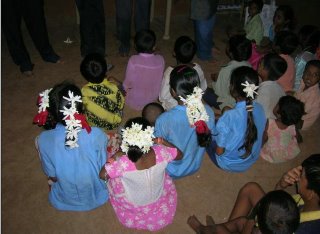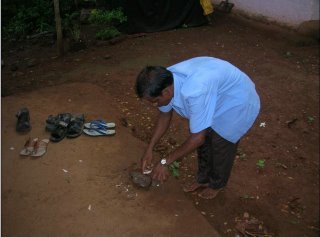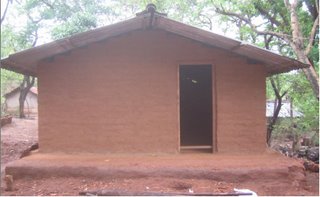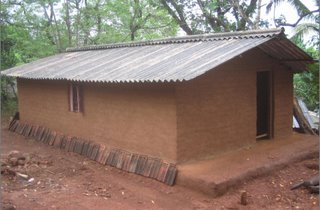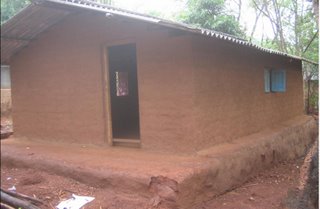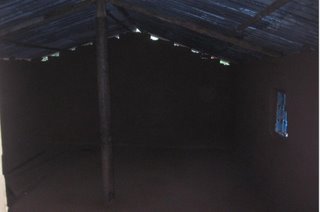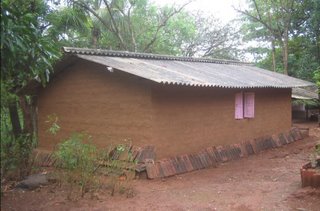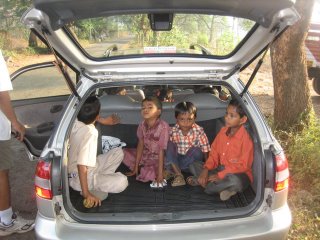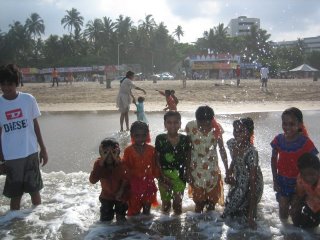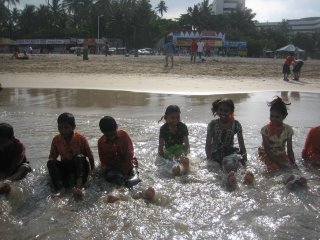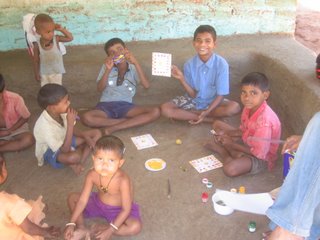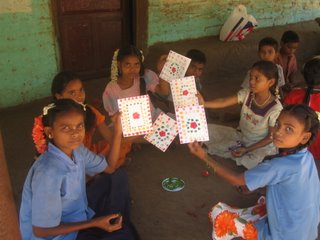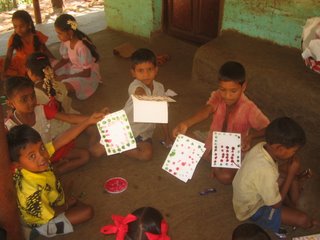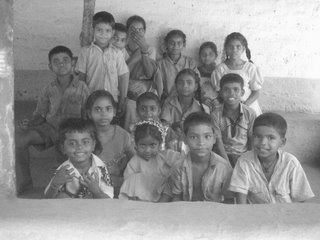I am personally involved in the education of children from 'Gaudevi pada' near the Picnic spot. I have considerable knowledge of the lifestyles of these people. The freedom with which they live is something which we city dwellers can only dream of. They live in mud huts built in vast tracts of land and though they dont have electricity (because the powers concerned are not willing to sanction substations), the peace and happiness in which they silently lead their day-to-day lives, is a sight to behold. It reminds one of all the nice virtues of a happy family, that we have been taught by our moral sciences textbooks when young.
From such a living to living in the small flats that the government promises to give them, is going to be a painful transition to these tribals. Their lives will never be the same again, their children will lose all their identity and live as normal 'city' zens, their culture would take a beating as they would not be able to follow the practices that they did while in their own lands. Shorn of all these - culture, freedom, and identity - they would be completely lost in concrete Mumbai, and no amount of wailing would then bring them back all this.
The 5000 sq-m piece of land that the government is planning to dereserve is for building a cemetery and for facilitating a SRA (Slum Rehabilitation Authority) project. So is it not obvious that the governent knew that it needed land for the project at the time of the slum evictions itself and that it had in its mind, snatching away land from the Aarey colony? Should this plan not have been revealed to all at the time of evictions itself? If the people had known that the slums are going to be evacuated and that the evictees will be rehabilitated in lands taken away from the Aarey colony, they would have raised a huge outcry. The evictions themselves might not have happened in the first place. But such are the systematic ways of the people that rule us that they are no different from the British that followed the policies of divide-and-rule. The babus split a huge plot into sub plots and reveal them to the people (us) one at a time (like is being done now) so that, we dont think that major changes are happening.
This 'freeing' of this 5000 sq-m should not be allowed as this will only be the start of the rot, the virus that will soon spread all over the colony and eventually erase all traces of it. Acceptance to this plan of the government will only embolden it further and serve as a precursor to more such evictions. Allowing the true sons of this soil, to be lead to strange places, and be stripped of all identity right in front of our pityless eyes, will only make us citizens, selfish souls, who are all happy, as long as we are happy, and who dont want to turn towards Aarey fearing to face the injustice that is being done there.
There are a lot of organisations that are working towards the cause of these tribals, but unfortunately they dont get much mileage as tribal development is not as glamorous a cause as say, child or women welfare. I am fortunate to have met Mr Vittal Laad who runs an organisation called JAAG which focuses on securing the rights of urban tribals. He says "These tribals never went to the city. The city grew and came into their home. They didn't know that a day would come when they would be asked to leave their homes because they did not have proof of residence." Such is the anguish in the man's eyes when he speaks of this issues that one cannot help wondering if there can be a better cause to work for.
What we can do, in the meantime as these NGOs fight directly on the battlefields, is do our little in preventing such injustice being committed. I read a book called "The Hungry Tide" written by Amitav Ghosh. It talks about how some Bangladeshi refugees settle down in a village called Morichjhanpi in the Sunderbans and how they build their own public systems and organise their lives beautifully. But there is talk of the government evicting them as they saw the refugees violate the Forest Act. The people of the village desperately want support and reach out to all they know, and just spread the word that such a thing is happening in their village and that they might be evicted soon. Though eventually they are brutally evicted, they do succeed in raising the hackles of many citizens of West Bengal, and the government does not have it easy. On the same lines, we can do our bit for the tribals of the Aarey Colony by spreading the word of the impending evictions. We can talk about the government plans to our friends, neighbours and anyone whom we know, we can hold discussions, speeches on the topic, those of us who can write can pen down our thoughts on the subject and publish them, if not in newspapers, at least in blogs and similar spaces on the web. We never know where and in what form help will come. But the more the number of people we reach, the better it is and the bigger the outcry against this policy.
The tide of the government sure is hungry now and if we dont build dams and other checkpoints soon, it is going to swamp these sacred lands in one big splash and that will be the last we ever see of them, and for all practical purposes, the people living in them too.
PS: To know more about the Morichjhanpi evictions, read

